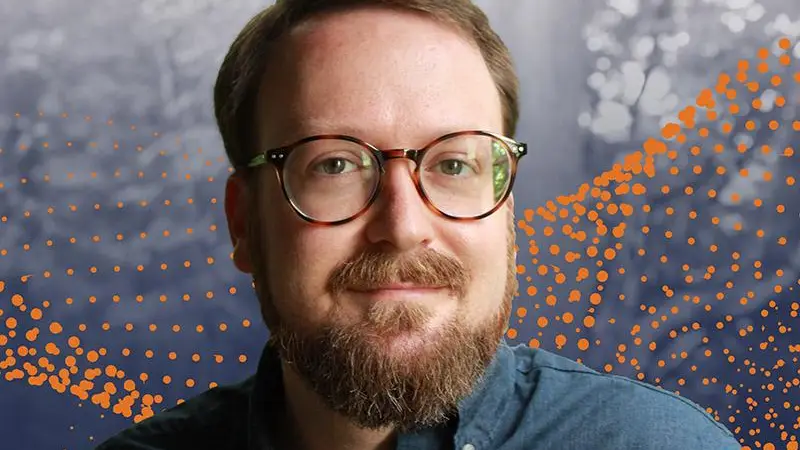The COVID-19 pandemic gave the global medical community the opportunity to take giant strides forward in understanding how to develop vaccines and implement public health measures designed to control the spread of disease, but the crisis also offered researchers the chance to learn more about another kind of contagion: ideas.
Mathematician and assistant professor of biology Nicholas Landry, an expert in the study of contagion, is exploring how the structure of human-interaction networks affect the spread of both illness and information with the aim of understanding the role social connections play in not only the transmission of disease but also the spread of ideas and ideology.
In a paper published this fall in Physical Review E with collaborators at the University of Vermont, Landry explores a hybrid approach to understanding social networks that involves inferring not just social contacts but also the rules that govern how contagion and information spread.
“With the pandemic, we have more data than we’ve ever had on diseases,” Landry said. “The question is, What can we do with that data and how much data do you need to figure out how people are connected?”
The key to making use of the data, Landry explained, is to understand their limitations and understand how much confidence we can have when using epidemic models to make predictions.
Landry’s findings suggest that reconstructing underlying social networks and their impacts on contagion is much more feasible for diseases like SARS-CoV-2, Mpox or rhinovirus but may be less effective in understanding how more highly infectious diseases like measles or chickenpox spread.
However, for extremely viral trends or information, Landry suggests it may be possible to track how they spread with more precision than we can achieve for diseases, a discovery that will better inform future efforts to understand the pathways of both contagion and misinformation.
If our reporting has informed or inspired you, please consider making a donation. Every contribution, no matter the size, empowers us to continue delivering accurate, engaging, and trustworthy science and medical news. Independent journalism requires time, effort, and resources—your support ensures we can keep uncovering the stories that matter most to you.
Join us in making knowledge accessible and impactful. Thank you for standing with us!

